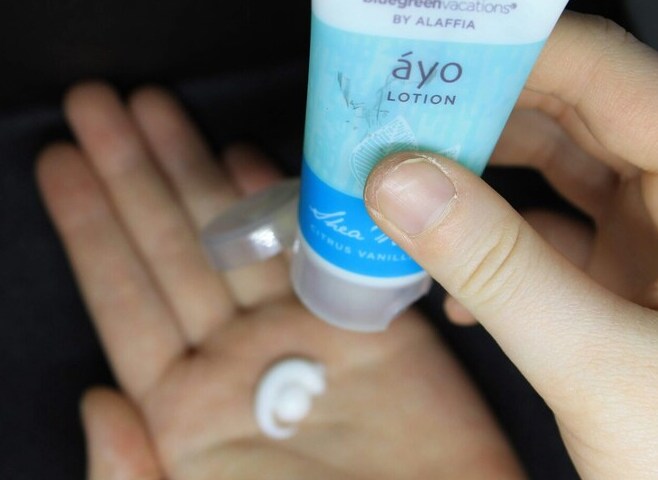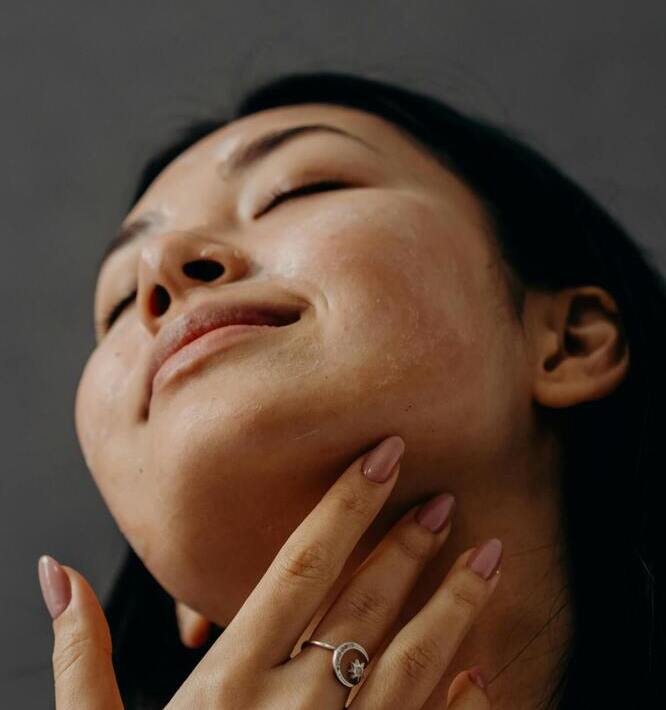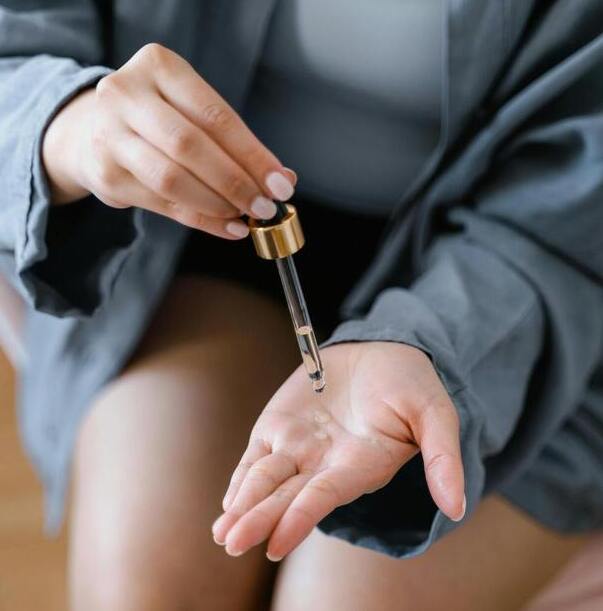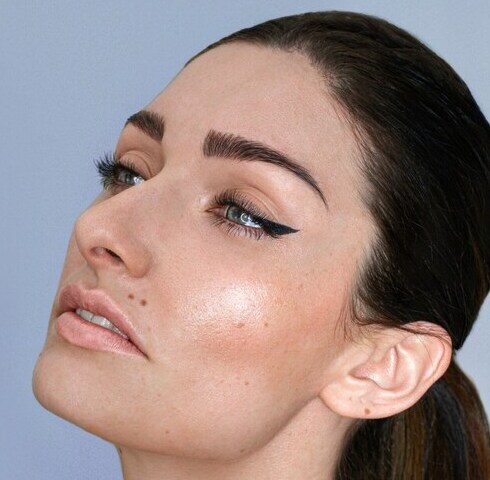Myth: Oily Skin Doesn’t Need Moisturizer: The Truth About Hydration

When it comes to mature oily skin care, there’s a persistent myth that needs debunking: the idea that oily skin doesn’t need moisturizer. If you’ve been skipping this crucial step, thinking it will reduce shine, you’re not alone. But the truth is, moisturization is vital for all skin types, including oily ones. Let’s dive into why hydration is key, even when your skin feels like it’s producing enough oil for the whole neighborhood!
Understanding the Difference Between Oil and Hydration
First things first, let’s clear up a common misconception: oil and hydration are not the same things. Just because your skin produces excess oil doesn’t mean it’s well-hydrated. In fact, oil is the skin’s natural way of trying to protect itself and retain moisture. When your skin lacks hydration, it can actually ramp up oil production to compensate, leading to even more shine. So, if you’ve been avoiding moisturizer, you might be doing more harm than good.
Think of it this way: oil is like the plastic wrap on a sandwich, and hydration is the sandwich itself. The plastic wrap (oil) protects the sandwich (hydration), but it doesn’t provide the actual substance. When your skin is properly hydrated, it’s plump, healthy, and less likely to produce excess oil. So, the next time you reach for that mattifying powder, remember that a good moisturizer can actually help control oil in the long run.
The Benefits of Moisturizing for Mature Oily Skin
Now that we’ve established that hydration and oil are different, let’s talk about the benefits of moisturizing, especially for mature oily skin care. As we age, our skin’s ability to retain moisture decreases, making hydration even more crucial. Without enough moisture, your skin can become dull, rough, and prone to fine lines and wrinkles. A good moisturizer helps to lock in hydration, keeping your skin soft and supple.
For those with oily skin, finding the right moisturizer is key. Look for lightweight, non-comedogenic formulas that won’t clog your pores. Ingredients like hyaluronic acid and glycerin are excellent choices because they attract and retain moisture without adding extra oil. Another great option is aloe vera, which soothes and hydrates without leaving a greasy residue. By incorporating a suitable moisturizer into your daily routine, you can achieve a healthy, balanced complexion.
How to Choose the Right Moisturizer for Oily Skin
Choosing the right moisturizer for oily skin can feel like navigating a skincare minefield. With so many options on the market, it’s easy to feel overwhelmed. But don’t worry; we’ve got you covered! When shopping for a moisturizer, look for terms like “oil-free,” “lightweight,” and “gel-based.” These products are designed to hydrate your skin without making it feel heavy or greasy.
Another important factor to consider is the ingredients list. Avoid products with heavy oils or pore-clogging ingredients like mineral oil and petroleum. Instead, opt for moisturizers with water-based formulas and hydrating ingredients like hyaluronic acid, niacinamide, or squalane. If you’re dealing with acne-prone skin, look for products with salicylic acid, which can help keep breakouts at bay. Remember, the goal is to hydrate without adding extra oil, so always choose a formula that suits your skin’s unique needs.
The Importance of Consistency in Skincare
One of the biggest mistakes people make in their skincare routine is inconsistency. You can’t expect to see results if you’re only moisturizing occasionally. Consistency is key, especially when it comes to mature oily skin care. Make it a habit to moisturize every morning and night after cleansing. This simple step can make a world of difference in the health and appearance of your skin.
A good skincare routine doesn’t have to be complicated. Start with a gentle cleanser to remove dirt and excess oil, followed by a hydrating toner to prep your skin. Then, apply your chosen moisturizer and finish with sunscreen in the morning. At night, you can add treatments like serums or exfoliants if needed. By sticking to a consistent routine, you can help balance your skin’s oil production and maintain a hydrated, youthful complexion.
Busting the Myths: Why Moisturizer Won’t Make You Greasier
One of the biggest fears for people with oily skin is that using moisturizer will make them even greasier. But here’s the thing: when your skin is properly hydrated, it’s less likely to overproduce oil. Dehydrated skin can lead to an increase in sebum production as your body tries to compensate for the lack of moisture. This can create a vicious cycle of oily skin and clogged pores.
Moisturizers are designed to provide the hydration your skin needs without triggering excess oil production. By choosing the right products and using them consistently, you can help regulate your skin’s natural oil balance. So, instead of skipping moisturizer, embrace it as a crucial step in your mature oily skin care routine. Your skin will thank you with a clearer, more balanced complexion.
Final Thoughts: Embracing Hydration for Healthy Skin
In the world of skincare, there are plenty of myths that can lead you astray, and the idea that oily skin doesn’t need moisturizer is a big one. The truth is, all skin types need hydration, especially as we age. By understanding the difference between oil and moisture and choosing the right products, you can keep your skin healthy, hydrated, and happy.
So, the next time you’re tempted to skip the moisturizer, remember that it’s an essential step in achieving a balanced, youthful complexion. With the right approach to mature oily skin care, you can enjoy a radiant, shine-free glow without compromising on hydration. After all, who doesn’t want to feel fabulous in their own skin? So, go ahead and give your skin the moisture it craves—you’ll be glad you did!
Myth: Exfoliation Should Be Avoided: Benefits of Regular Exfoliation
When it comes to mature oily skin care, one common myth is that exfoliation should be avoided. This myth often stems from the fear of over-stripping the skin or causing irritation. However, exfoliation, when done correctly, is actually a crucial step in maintaining a healthy, glowing complexion. So, let’s debunk this myth and dive into the many benefits of regular exfoliation. Spoiler alert: your skin will love it!

The Science Behind Exfoliation: What It Does for Your Skin
Exfoliation is like a little dance party for your skin cells, where the old ones get gently shuffled off the dance floor, making room for the fresh, new cells. This process helps to remove dead skin cells that can clog pores and lead to dullness. For those with mature oily skin, regular exfoliation can be a game-changer. It not only helps to control oil but also keeps your skin looking bright and youthful.
Imagine your skin as a canvas. If it’s covered in dead skin cells, it can look rough and uneven. Exfoliation smooths out the surface, making it easier for skincare products to penetrate and work their magic. Plus, it can give your complexion a beautiful, natural glow. So, if you’ve been skipping exfoliation, thinking it’s too harsh, it’s time to rethink your routine!
Types of Exfoliation: Physical vs. Chemical
Now, let’s talk about the two main types of exfoliation: physical and chemical. Physical exfoliation involves using scrubs or brushes to manually slough off dead skin cells. It’s like giving your skin a gentle massage with a scrub. Just be sure to choose a product with fine, gentle particles to avoid irritation, especially for mature skin.
On the other hand, chemical exfoliation uses acids like alpha hydroxy acids (AHAs) or beta hydroxy acids (BHAs) to dissolve dead skin cells. It might sound a bit scary, but these acids are often derived from natural sources like fruits and are gentle yet effective. AHAs, like glycolic acid, work on the skin’s surface to improve texture and tone, while BHAs, like salicylic acid, penetrate deeper to unclog pores and reduce oil. For those with mature oily skin, chemical exfoliants can be a fantastic option to keep your skin clear and radiant.
Benefits of Regular Exfoliation for Mature Oily Skin
So, why is regular exfoliation a must for mature oily skin care? First and foremost, it helps to control excess oil. When you exfoliate, you remove the layer of dead skin cells that can trap oil and dirt. This helps to prevent clogged pores and breakouts, which are common concerns for those with oily skin. Plus, it can reduce the appearance of large pores, making your skin look smoother and more refined.
Another major benefit is that exfoliation can boost collagen production. As we age, our skin’s natural cell turnover slows down, leading to a loss of firmness and elasticity. Regular exfoliation stimulates cell renewal and collagen production, which can help to firm up your skin and reduce the appearance of fine lines and wrinkles. It’s like giving your skin a little workout!
Exfoliation also enhances the effectiveness of your other skincare products. By removing the barrier of dead skin cells, it allows your serums, moisturizers, and treatments to penetrate more deeply and work better. This means you get more bang for your buck with your skincare routine. And who doesn’t love that?
How to Exfoliate Safely: Tips and Tricks
While exfoliation is beneficial, it’s important to do it safely, especially if you have mature skin. Over-exfoliating can lead to irritation, redness, and even breakouts. So, how do you strike the right balance? Start slow, especially if you’re new to exfoliation. For physical exfoliation, use a gentle scrub once or twice a week. For chemical exfoliants, start with a low concentration and gradually increase as your skin adjusts.
Always follow up with a good moisturizer, as exfoliation can temporarily disrupt your skin’s moisture barrier. And don’t forget sunscreen! Exfoliation can make your skin more sensitive to the sun, so be sure to apply a broad-spectrum SPF every morning. Protecting your skin from UV rays is essential for maintaining a youthful, healthy complexion.
Debunking the Fear: Why Exfoliation Isn’t Scary
It’s easy to understand why some might be hesitant about exfoliation, especially with mature oily skin. The idea of scrubbing or using acids can sound intimidating. But here’s the thing: when done correctly, exfoliation is one of the best things you can do for your skin. It’s not about stripping your skin or causing damage; it’s about gently encouraging your skin to renew itself.
Think of it as a gentle nudge to keep your skin in top shape. Just like you wouldn’t skip brushing your teeth, exfoliation should be a regular part of your skincare routine. It’s all about finding the right products and routine that work for you. And remember, exfoliation is not a one-size-fits-all approach. Listen to your skin and adjust your routine as needed.
Conclusion: Embrace Exfoliation for a Radiant Complexion
In conclusion, the myth that exfoliation should be avoided is just that—a myth. Regular exfoliation is an essential part of mature oily skin care. It helps to control oil, improve skin texture, boost collagen production, and enhance the effectiveness of your skincare products. Plus, it gives you that fresh, glowing complexion that we all crave.
So, go ahead and embrace exfoliation! With the right approach and products, you can enjoy all the benefits without any of the fears. Your skin will thank you with a healthy, radiant glow. After all, who doesn’t want to put their best face forward? So, grab your favorite exfoliant and get ready to reveal your most beautiful skin yet!
Myth: Natural Oils Are Bad: Understanding the Benefits of Facial Oils
When it comes to mature oily skin care, one of the biggest misconceptions is that facial oils are a no-go. The thought of adding oil to already oily skin can seem counterintuitive, but in reality, natural oils can be a game-changer for your skincare routine. Let’s dive into the truth about facial oils and why they shouldn’t be feared. Spoiler: they might just become your new best friend!

The Oil Scare: Why Are We So Afraid of Facial Oils?
It’s easy to understand why the myth that natural oils are bad for oily skin exists. The idea of adding more oil to already shiny skin seems like a recipe for disaster, right? Wrong! This myth often stems from a misunderstanding of how oils work. Not all oils are created equal, and some can actually balance and nourish your skin rather than clogging pores and causing breakouts.
In fact, your skin naturally produces oil, or sebum, to protect itself. However, sometimes our skin can produce too much or too little sebum, leading to issues like acne or dryness. This is where the right facial oils come in. They can help balance your skin’s natural oil production, providing hydration without making you look like a grease ball. So, don’t be afraid of oils—they might just be the missing ingredient in your skincare routine!
The Benefits of Natural Oils: Nourishment Without the Grease
Now, let’s talk about the benefits of natural oils in mature oily skin care. One of the most significant advantages is hydration. As we age, our skin’s natural ability to retain moisture decreases, which can lead to dryness and an increase in fine lines. Facial oils, rich in essential fatty acids, can help lock in moisture and keep your skin plump and hydrated.
Another benefit is that many natural oils are packed with antioxidants. These antioxidants help protect your skin from environmental damage, like pollution and UV rays, which can accelerate the aging process. Oils like argan oil, rosehip oil, and jojoba oil are particularly beneficial because they’re lightweight and absorb quickly without leaving a greasy residue. They can help soothe inflammation, reduce redness, and even out your skin tone, making them perfect for mature oily skin.
Facial oils can also help to regulate your skin’s oil production. It might sound strange, but using oil can actually signal your skin to produce less sebum. When your skin is properly hydrated, it doesn’t need to go into overdrive to protect itself. This can lead to a more balanced complexion with fewer breakouts and less shine. So, if you’ve been battling oily skin, adding a facial oil to your routine could be a game-changer!
Choosing the Right Oil: Finding Your Perfect Match
Not all oils are suitable for every skin type, so it’s essential to choose the right one for your mature oily skin. Look for non-comedogenic oils, which means they won’t clog your pores. Some great options include jojoba oil, which mimics your skin’s natural sebum, and squalane oil, which is incredibly hydrating without being heavy. These oils are lightweight, fast-absorbing, and perfect for oily skin.
Rosehip oil is another excellent choice, especially for mature skin. It’s packed with vitamins A and C, which can help reduce the appearance of fine lines and hyperpigmentation. It also contains essential fatty acids that help repair and regenerate the skin. If you’re looking for something a bit more luxurious, try argan oil. Known as “liquid gold,” it’s rich in antioxidants and essential fatty acids, making it incredibly nourishing and protective.
When introducing a new oil into your routine, start with a patch test to ensure your skin doesn’t react negatively. Begin with a small amount and gradually increase as your skin adjusts. Remember, a little goes a long way with facial oils. Just a few drops are enough to cover your entire face and neck. You can use oils as the last step in your nighttime routine or mix a drop or two into your moisturizer for an extra hydration boost.
Debunking the Myths: Why Facial Oils Are Not the Enemy
It’s time to debunk the myth that natural oils are bad for mature oily skin. In reality, the right facial oils can provide essential nutrients, balance oil production, and keep your skin looking youthful and radiant. They’re not something to be feared or avoided. Instead, they should be embraced as a vital part of your skincare routine.
Think of facial oils as the cherry on top of your skincare sundae. They seal in moisture, protect your skin from environmental aggressors, and provide a beautiful, healthy glow. Plus, they can be a luxurious and soothing addition to your self-care routine. So, next time you’re hesitant about using oil on your face, remember that not all oils are created equal, and the right one can make all the difference.
Conclusion: Embrace the Benefits of Facial Oils
In conclusion, the myth that natural oils are bad for oily skin is just that—a myth. When chosen carefully and used correctly, facial oils can be a fantastic addition to your mature oily skin care routine. They offer hydration, nourishment, and protection without clogging pores or causing breakouts. So, don’t be afraid to incorporate a facial oil into your regimen. Your skin will thank you with a healthy, radiant glow.
Embrace the benefits of natural oils and say goodbye to the fear of extra shine. With the right oil, you can achieve balanced, beautiful skin that feels as good as it looks. So go ahead, indulge in a little facial oil love, and enjoy the many benefits it brings. After all, who doesn’t want their skin to feel soft, hydrated, and absolutely fabulous?
Myth: Oily Skin Ages Slower: Addressing Wrinkles and Fine Lines
One common belief in the skincare world is that oily skin ages more slowly than other skin types. The idea is that the extra sebum produced by oily skin helps keep it moisturized, preventing wrinkles and fine lines from forming. But is this really true? While there might be some benefits, it’s important to understand that oily skin isn’t a magic anti-aging solution. Let’s explore the reality of aging with mature oily skin and how to care for it properly.

The Truth About Oily Skin and Aging: Debunking the Myth
First, let’s address the myth head-on: oily skin doesn’t necessarily age slower. The idea comes from the fact that oily skin often appears more hydrated and less prone to dryness. While this can give the illusion of smoother skin, it’s not a guarantee against wrinkles or fine lines. As we age, our skin’s collagen and elastin break down, leading to sagging and wrinkles regardless of skin type. So, even if your oily skin feels more supple, it still requires proper care to maintain a youthful appearance.
The extra sebum in oily skin can indeed provide some moisture, but it doesn’t replace the need for a good skincare routine. In fact, the overproduction of oil can sometimes lead to clogged pores, acne, and inflammation, which can exacerbate aging signs. So, while oily skin might have a slight advantage in retaining moisture, it’s not immune to the natural aging process. It’s essential to focus on overall skin health rather than relying on your skin type to slow down aging.
Wrinkles and Fine Lines: Why They Happen Anyway
Regardless of skin type, wrinkles and fine lines are an inevitable part of aging. They happen because our skin loses its natural elasticity and firmness over time. Factors like sun exposure, environmental pollutants, and lifestyle choices can accelerate this process. Even if you have oily skin, you’re still susceptible to these external factors. That’s why sun protection and a good skincare regimen are crucial.
For those with mature oily skin, the appearance of wrinkles might be less noticeable at first, but that doesn’t mean they’re not there. The excess oil can sometimes mask the initial signs, giving a false sense of security. However, as time goes on, the deeper lines and loss of volume become more apparent. It’s important not to neglect anti-aging treatments and preventive measures just because your skin feels oily. Hydration, sun protection, and targeted treatments for fine lines are essential components of a well-rounded skincare routine.
Anti-Aging for Oily Skin: Finding the Right Balance
When it comes to mature oily skin care, finding the right balance is key. You want to hydrate and nourish your skin without exacerbating oiliness or clogging pores. Look for lightweight, non-comedogenic moisturizers that provide hydration without a greasy feel. Ingredients like hyaluronic acid and glycerin are excellent for drawing moisture into the skin without adding oil.
In addition to hydration, incorporating anti-aging ingredients is crucial. Retinoids, for example, can help reduce the appearance of fine lines and wrinkles by promoting cell turnover. However, they can be drying, so it’s essential to start slowly and monitor how your skin reacts. Another great option is niacinamide, which helps regulate oil production and improves skin texture. It’s a gentle ingredient that can be used daily to keep your skin looking smooth and youthful.
Don’t forget about sun protection! Even if your skin is oily, you need to wear sunscreen every day. UV rays are a major contributor to premature aging, causing wrinkles, fine lines, and sunspots. Choose a broad-spectrum sunscreen with an SPF of at least 30 and look for formulas that are oil-free and non-comedogenic. This will help protect your skin without making it feel greasy.
Embracing Your Skin’s Natural Qualities: Loving the Skin You’re In
It’s important to embrace your skin’s natural qualities, even if it’s oily. Oily skin has its unique challenges and benefits, and understanding how to care for it can make a big difference in your skin’s health and appearance. Remember, aging is a natural process, and everyone will experience wrinkles and fine lines at some point. The goal is to age gracefully and keep your skin looking and feeling its best.
For mature oily skin care, focus on a routine that balances oil production, provides hydration, and protects against environmental damage. Don’t fall into the trap of over-stripping your skin with harsh cleansers or skipping moisturizer because you’re afraid of looking shiny. Instead, opt for gentle, hydrating products that support your skin’s needs. And most importantly, don’t forget to enjoy the process! Taking care of your skin can be a relaxing and rewarding experience.
Conclusion: Oily Skin and Aging—The Final Verdict
In conclusion, while oily skin might have some advantages in terms of hydration, it’s not a guaranteed shield against aging. Wrinkles and fine lines can still appear, and it’s essential to take a proactive approach to skincare. Focus on maintaining a balanced routine that includes hydration, sun protection, and targeted anti-aging treatments. And remember, aging is a natural part of life, so embrace it with confidence and love the skin you’re in. After all, a happy, healthy complexion is the best anti-aging secret of all!



One thought on “Myths About Mature Oily Skin Debunked”
Comments are closed.